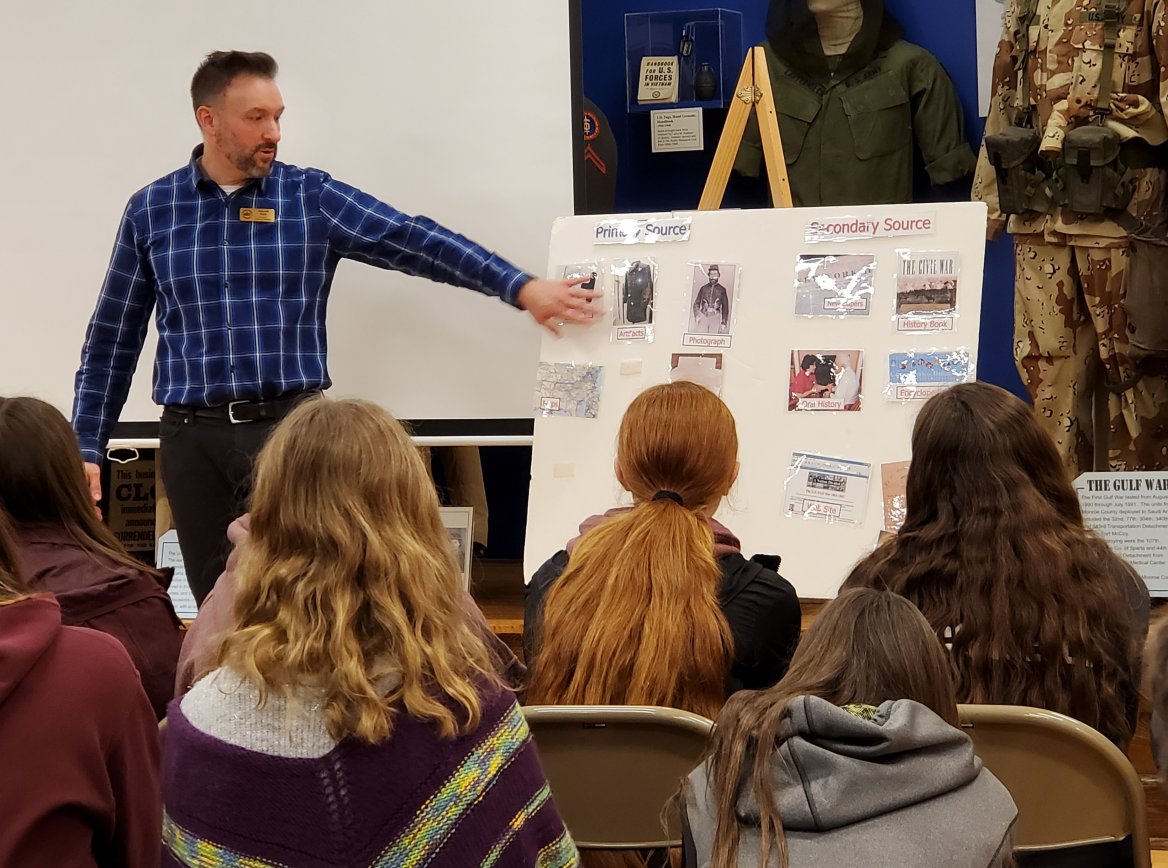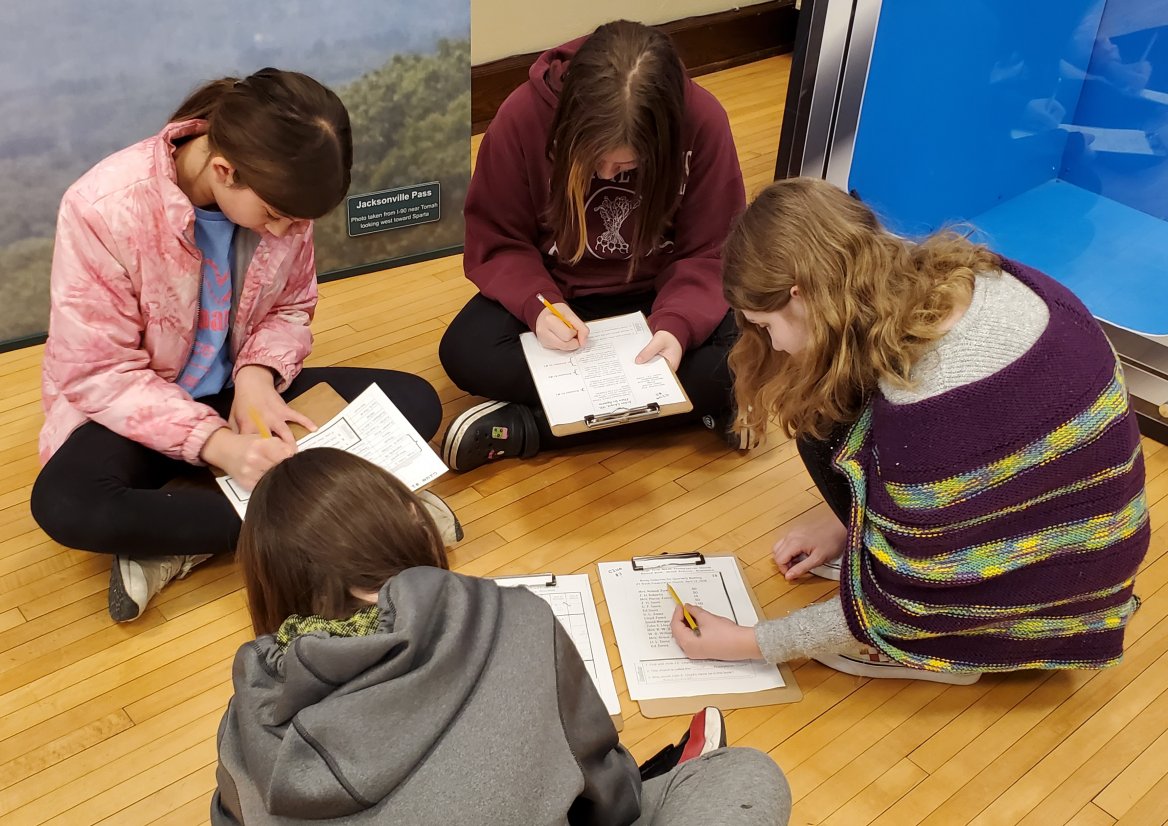Topics: Research Methods; Primary vs. Secondary Sources
Suggested Grade Level: 4-8
Required Time: 45-60 minutes
Description:
An introduction to researching and writing history. Using the analogy of detectives solving a crime, students will understand what “history” is, learn how to select a research topic, differentiate between “Primary” and “Secondary” sources, locate and evaluate sources of information, and use those resources to solve a problem. Students will also participate in a hands-on group activity in which they are challenged to analyze clues in a group of records to solve a history mystery.
Goals:
- Students will understand what “history” is and how it is researched and recorded
- Students will know the difference between “Primary” and “Secondary” sources
- Students will use primary sources to solve a problem/answer a research question
Wisconsin Standards for Social Studies related to the program:
- SS.Inq1: Wisconsin students will construct meaningful questions that initiate an inquiry.
- SS.Inq2: Wisconsin students will gather and evaluate sources.
- SS.Inq3: Wisconsin students will develop claims using evidence to support reasoning.
- SS.Inq4: Wisconsin students will communicate and critique conclusions.
- SS.BH1: Wisconsin Students will examine individual cognition, perception, behavior, and identity.
- SS.Geog1 Wisconsin students will use geographic tools and ways of thinking to analyze the world.
- SS.Geog4: Wisconsin students will evaluate the relationship between identity and place.
- SS.Hist1: Wisconsin students will use historical evidence for determining cause and effect.
- SS.Hist2: Wisconsin students will analyze, recognize, and evaluate patterns of continuity and change over time and contextualization of historical events.
- SS.Hist3: Wisconsin students will connect past events, people, and ideas to the present; use different perspectives to draw conclusions; and suggest current implications.
- SS.Hist4: Wisconsin students will evaluate a variety of primary and secondary sources to interpret the historical context, intended audience, purpose, and/or author’s point of view.


